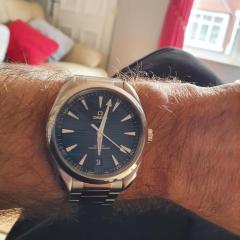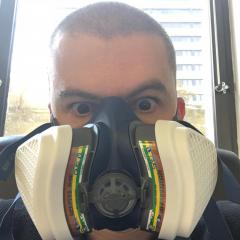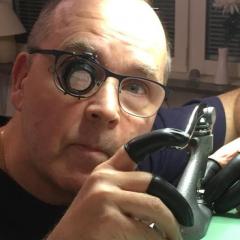-
Recently Browsing
- No registered users viewing this page.
-
Topics
-
Posts
-
By watchweasol · Posted
Hi. Yes I get it , the slot in the end I’d to allow you to screw the button on whilst holding the pusher shaft. To remove the pusher tube you will need a tool such as the one shown by Richard. I think Ali Express the Chinese Amazon has replicas of the Horotec system for a lot less money, how effective they are not having had to use one. But as you said the way to go is complete removal and replacement, bodging it up will lead to a repeat failure -
It does look like it seems to be working again I'm getting emails.
-
One of the things that I've been bothered with lately is timekeeping? For instance a 90-year-old pocket watch what so to timekeeping was it supposed to keep? They publish railroad timekeeping but I don't know how well normal non-railroad watches were supposed to keep time. The reason why the question comes up for me is I spend a lot of time at work adjusting watches to keep really really good time because I have to please my boss where as when the watch was made I have to wonder what kind timekeeping would've been acceptable. After all they typically didn't have timing machines 100 years ago and they were timing and six positions certainly not for the non-railroad grade watch. On the other hand I do get paid by the hour so maybe I shouldn't be concerned of how much time I Spend trying to make everything keep chronometer timekeeping almost. Citing a Delta of 40 seconds for a 90-year-old watch is quite outstanding.
-
That's an interesting question which I don't think I've seen explained anywhere. But I think the problem will go away just about instantaneously. In other words the coating is really thin and it should go away almost immediately. So the problem should resolve itself extremely fast.
-
I experienced that different types of shellac and their ages are affected differently by IPA. Sometimes the shellac dissolves in a few seconds and sometimes several minutes are required. Nowadays I never let shellac come into contact with IPA. It's a hotly debated topic here on WRT if you search. Like John, I don't think you need to worry about the weight of the shellac, but instead that it might start rubbing against something. When I learned how to adjust pallet stones, I tried documenting my experiences in this thread. Hopefully, it can help you. I personally don't believe in the idea of abrading the epilame before oiling so I don't think you need to think or worry about it. The only time I've heard anyone mention this is Alex on the YouTube channel Watch Repair Tutorials but actually no one else. I'm not saying it's "wrong" just that I don't think it's necessary or adds anything.
-





.thumb.png.f90dbf035d35248cb483d466310379d3.png)

Recommended Posts